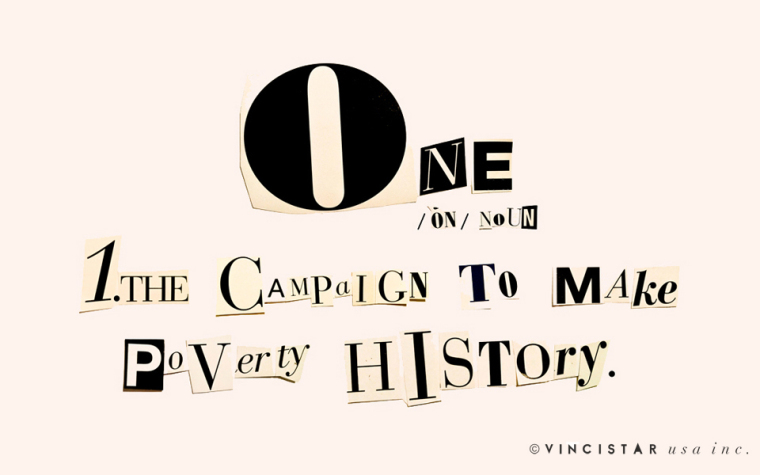
Photo Credit: Beau Bumpas Photography 2012
Screening of THE LAZARUS EFFECT & AIDS Quilt Display
Kyle Talkington serves as a Congressional District Leader at ONE among at least 200 volunteer leaders across the county. In addition to Congressional Districts, ONE has leaders at college and university campuses and faith regional leaders nationwide.
Background
I first became involved with ONE in 2006 while in graduate school. Bono gave an inspirational talk at Fair Music Hall that year, and I had been studying issues and conditions related to poverty in my classes. Having been HIV+ since 1990, I had empathy for those in Africa who had no access to meds and who might fear the prospect of opportunistic infection and death that accompanies AIDS. When I came across an opportunity to be part of the solution to poverty and preventable disease, I jumped at the chance and joined ONE.
How do you challenge indifference towards poverty? It seems like charity campaigns are getting more and more creative and controversial to increase awareness and engagement among people, Kony 2012 to name one. In which groundbreaking ways is ONE trying to establish connections and relationships with supporters?
I’m not sure I would characterize American attitudes toward poverty as indifference. I think ignorance, in the true sense of the word, is a more apt description. Here, we tend to think of poverty as those with not as much, but who still may have food to eat, cell phones, televisions, even a car to drive. The United Nations qualifies extreme poverty as those living on less than $1.25 a day. We just don’t see that often here in the states. I have found that when Americans really know the state of the world’s poorest, they want to help. Sometimes, they just don’t know how.
A 2010 World Public Opinion poll found that Americans believed that foreign aid consumed one-quarter of federal spending. They said it should be slashed to 10 percent.
In fact, all foreign aid accounts for only about 1 percent of federal spending — and that includes military assistance and a huge, politically driven check made out to Israel, a wealthy country that is the largest recipient of American aid. True humanitarian aid constitutes roughly half of 1 percent of the federal budget — and sometimes gets remarkable results, as is happening with AIDS.
ONE is experimenting with new social media campaigns such as the Funny or Die “In 2015…” and the “Why Bother?” PSA last year. ONE also has initiatives aimed at certain groups such as mothers with ONE Moms and veterans with allies such as the Truman National Security Project. Probably our most important endeavor this year is turning some of ONE’s 1.7 million U.S. “clicktivists” into offline catalysts, who will write letters, make phone calls, and visit their Members of Congress and advocate for ending extreme poverty and preventable disease.
What issues are currently at the top of ONE’s agenda?
ONE’s priorities for 2012 continue to included PEPFAR (President’s Emergency Plan For AIDS Relief) and The Global Fund To Fight AIDS, Tuberculosis, and Malaria. The Senate Appropriations Committee has recommended full funding for these programs; however, the House Budget Committee made serious cuts, and we are working to restore those. Our new multiyear campaign THRIVE focuses on lifting 50 million people out of poverty and preventing stunting in 15 million children through agriculture and nutrition programs. ONE launched an aggressive campaign to this latter priority in the face of world leaders prior to the recent G8 Summit at Camp David.
What are some of the things we can do in our daily lives to contribute to the cause?
All of us ordinary Americans can begin by educating ourselves on the problems and the solutions. We can read or watch the news, keep up with the ONE Blog or ONE Dallas Facebook page, and subscribe to the newsletters of our elected officials. We can select one out of over a hundred of ONE’s national partners to support. Most importantly, we can exercise some of our most precious rights and freedoms by providing a voice for the voiceless and voting for candidates who support smart, results-driven solutions to extreme poverty and preventable disease.
4

